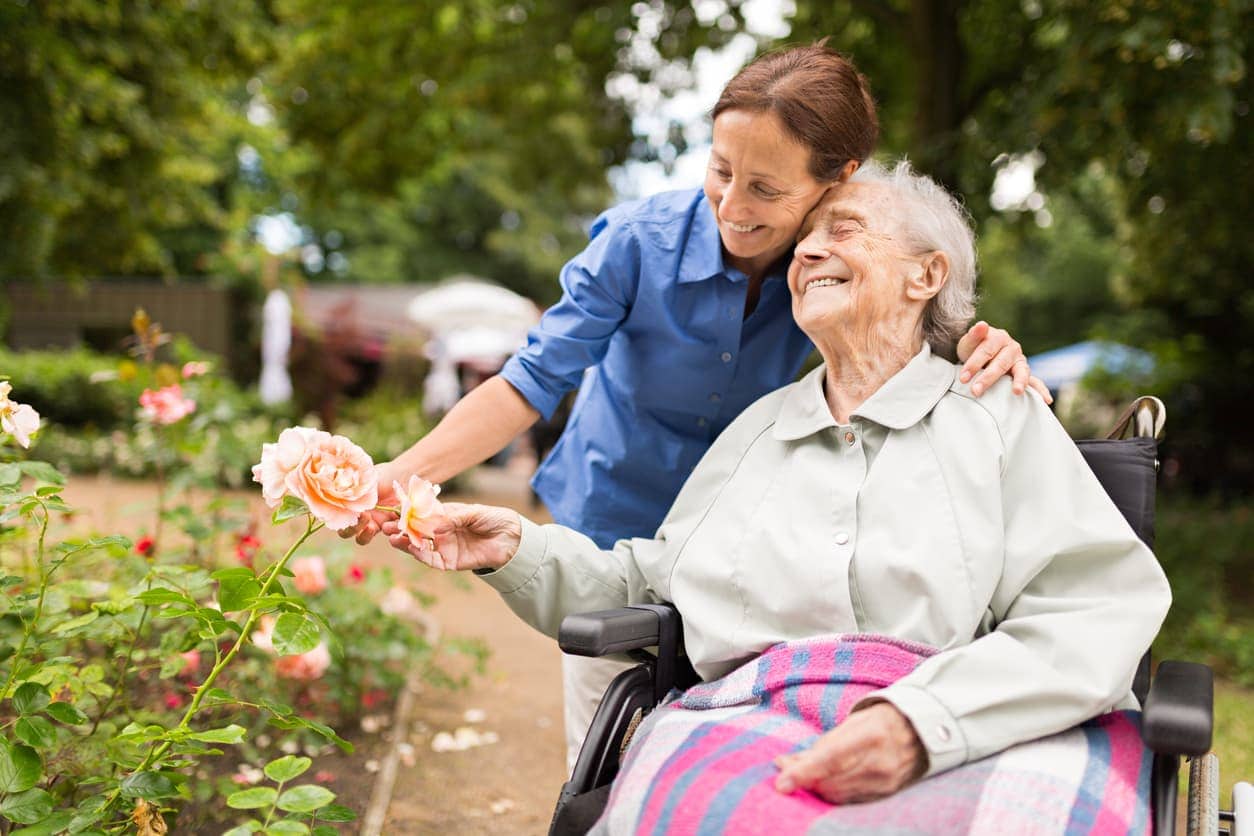
Accepting the Need for Memory Care
It’s typical for families to discuss finding care for a loved one in the mid-to-late stages of dementia, but it isn’t easy. Moving a family member to a memory care community can cause a wave of grief, guilt, and sadness. The notion of pulling someone you love out of their daily routine often feels wrong at that moment. It feels like abandonment. It feels like a weak decision. It seems so final.
But caring for someone we love means making sure they’re safe, protected, and healthy, and sometimes we can’t do that alone. Accepting that your loved one needs memory care is a difficult process, but one that will enable you to focus on enjoying your relationship and your time together.
How Do You Know It’s Time for Memory Care?
According to U.S. News, 5.8 million people in the U.S. have Alzheimer’s disease, the most common form of dementia. They list six distinct behaviors that indicate a genuinely needed move to a memory care community like Avalon.
- Changes in behavior. Someone who was always calm and collected may suddenly show signs of aggravation or irritation.
- Changes in appearance. Someone who has always dressed meticulously may be disheveled or unwashed. People with Alzheimer’s disease can forget how to bathe or style their hair.
- Confusion and disorientation. Confusion can become dangerous if your loved one drives or wanders from the house. It’s critical to address safety issues for your loved one’s sake and the safety of others.
- A decline in physical health. A decline could mean that your loved one forgot to go grocery shopping or forgot how to cook. It could also mean they haven’t taken their meds or have taken too much.
- A caregiver’s deterioration. When a caregiver dies, is ill, or incapacitated, the person with Alzheimer’s will falter faster.
- Incontinence. Incontinence is prevalent with elderly who have Alzheimer’s disease. It takes a huge physical and emotional toll on caregivers.
Accepting that your loved one needs memory care takes education, new understanding, and medical expertise. Perhaps asking yourself this question can be helpful:
“If I were the person with memory loss, what would I want to be done for me?”
If you still struggle with guilt and sadness, remember it means you genuinely care. However, it doesn’t mean that caregiving is your obligation, especially when there is a solution with professional caregivers who specialize in dementia care. Providing your loved one with a safe place to live means you care about their safety and comfort, you care about their physical and mental health, and you care about maintaining a loving relationship with them.
Research the Best Community
Here are several essential questions to ask the memory care communities you consider. Don’t be shy. Come with pen and paper in hand and take detailed notes. Having this information will help you weigh the pros and cons of your options.
1) What level of care does the community provide?
2) What type of training has the staff received?
3) What is the monthly rate for housing and care? What services does that rate include?
4) Are rooms private or semi-private? How do prices vary for each?
5) What level of personal assistance can residents expect?
6) What is the policy for handling medical emergencies?
7) How is the community secured?
8) Will the community provide all meals? Are special dietary requests, such as kosher meals, accommodated?
9) How often are housekeeping and laundry service provided?
10) What programs (exercise, physical therapy, social and other activities) does the facility offer?
11) Does the facility accommodate special care needs, such as diabetic care, mobility issues, physical aggressiveness, or wandering?
12) Are residents grouped by cognitive level?
13) What is the staff-resident ratio during the day/night?
14) How does the facility communicate with families about a resident’s well-being?
15) What is the discharge policy?
* Resource: Alzheimers.net
If you decide that memory care is right for your loved one, here is a suggested list of things to pack. You’ll want your loved one’s space to be as familiar as possible to help with the transition.
- Clothing (comfortable, wash and wear and labeled with their name)
- Shoes and slippers
- Undergarments
- PJs and Robe
- Toiletries
- For men: electric razor
- Bathmat
- Laundry basket
- Two small trash cans (1 for room, 1 for bathroom)
- Bedding/Pillows
- Any durable medical equipment or assistive devices used at home, such as a walker or wheelchair
- Glucometer, strips, and lancets for diabetic patients
- All medications, in the original bottles.
- A list of medications with administration instructions. (Example: time of day, with or without food, crushed.)
Arrange the furniture like it looks at home and hang the same pictures. Keep as many things as possible familiar. Too many new things may reinforce the idea that everything is new.
Reach Out for Support
You don’t have to deal with the sadness and guilt of moving your loved one on your own. Countless support groups connect and support people in your situation. Seek out a therapist, or talk to caregivers, friends, and family members who are also impacted by Alzheimer’s. Small actions can help, too, like writing in a journal and learning more about new treatments for Alzheimer’s patients.
Overall, placing your loved one in the hands of memory care specialists like those at Avalon will significantly benefit them and you. A daily routine, structure, and stimulation from other residents and staff will only help them. It also gives you a chance to take care of yourself and do the important things you have been neglecting while caring for your loved one. A memory care community still gives you plenty of opportunities to be a part of your loved one’s everyday life while also giving you the chance to practice self-care as well.
See More Articles
-
Visiting Your Aging Parent With Memory Loss at Avalon Memory Care
As a loving son or daughter, you naturally want the best of care for your senior parent. The compassionate assisted living caregivers at Avalon Memory Care want you to know that while your parent is living with us, he or she will receive nothing less than respectful, loving care within our comfortable, safe, and fully-staffed
-
Celebrating New Year’s Day in Memory Care
Families often find that celebrations with their loved ones in memory care are easier when they embrace new traditions. For instance, it may not be practical to expect your loved one to stay up until midnight on New Year’s Eve. Instead, consider throwing a New Year’s Day celebration, complete with a countdown to the first
-
Understanding Parkinson’s Disease and Dementia
Parkinson’s disease is an incurable neurological disorder, with progressively worsening complications. Perhaps the most well-known symptom of Parkinson’s is a hand tremor, but it can also cause speech changes, muscle rigidity, and impaired posture. Eventually, as the disease progresses, more than half of all individuals with Parkinson’s will require dementia care. This particular type of
Testimonials
Downloadable Resources
We Are Avalon
Discover the heart of our community; download ‘We Are Avalon’ to get to know our dedicated team and our commitment to providing a warm, family-like environment.
Transitional Care Guide
If you’re considering a transition, we’re here to help; download our Transitional Care Guide for compassionate guidance through each step of the process.
Schedule a Tour
Visit one of our 30+ campuses and experience our unique approach to memory care.












